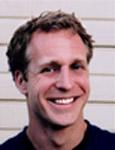When we first meet Henry Skrimshander, one of the charming-but-flawed characters in Chad Harbach’s debut novel, The Art of Fielding, he is a scrawny hayseed. A talented shortstop in South Dakota, Henry, like most teenage athletes, dreams about playing in the Major League. It seems, however, as if Henry’s future is more destined for the blue-collar world until he is recruited to play ball at Westish College, an elite (but fictional) liberal arts college in Wisconsin, where he begins a rollercoaster ride through freshman year and joins four other equally charmed-and-doomed characters.
 But The Art of Fielding is more than just another book about baseball and about so much more than college life—although, even if it were just this, the novel would rival Bernard Malamud’s The Natural and Jane Smiley’s Moo. And to pigeonhole the story as a meditation on baseball is like saying that Moby-Dick is about whaling: Baseball and college are both the excuse and the setting for a marvelous story about friendship, obsession, elegance, and the chasing of dreams.
But The Art of Fielding is more than just another book about baseball and about so much more than college life—although, even if it were just this, the novel would rival Bernard Malamud’s The Natural and Jane Smiley’s Moo. And to pigeonhole the story as a meditation on baseball is like saying that Moby-Dick is about whaling: Baseball and college are both the excuse and the setting for a marvelous story about friendship, obsession, elegance, and the chasing of dreams.
The novel is equally fun to read as a breezy love story and as an underdog sports tale, and Harbach deftly explores the deeper truths within the characters. Stuffed as full as a grad student’s bookcase, the story routinely alludes to Thoreau’s Walden, Melville’s Moby-Dick, and Pirsig’s Zen and the Art of Motorcycle Maintenance, with Henry reading passages from his well-thumbed copy of a high-minded manual on living and shortstop fielding (a made-up book also entitled The Art of Fielding): “To field a groundball must be considered a generous act and an act of comprehension,” one passage from the manual reads. “Bad fielders stab at the ball like an enemy. This is antagonism. The true fielder lets the path of the ball become his own path, thereby comprehending the ball and dissipating the self, which is the source of all suffering and poor defense.”
The story pulls as easily from academic references and classic literature as it does from the author’s own imagination, as Harbach coyly riffs on established themes when he changes the Westish College mascot to the Harpooners after long-lost academic papers chronicling Melville’s late-life (yet fictional) trek to Lake Michigan are discovered in a basement.
As he cleverly blends elements of classic American literature with fun-spirited half-truths, Harbach confidently presents himself as a smart and engaging storyteller. Born and raised in Racine, Harbach clearly knows Wisconsin—its landscape, people, and habits—and he handles this knowledge with loving care, both waxing eloquent about Lake Michigan and taking time to gently poke fun at Midwest mannerisms.
More than a decade ago, Harbach left Wisconsin for college at Harvard and has since stayed put in Boston, where he toils as a Senior Editor for n+1, a provocative and well-regarded literary magazine published three times a year.
Like the characters in The Art of Fielding, Harbach has had to grapple with career aspirations that fell short. In a recent interview with the LA Times, Harbach explained that he has been living as a starving artist for the past decade (managing a literary magazine apparently isn’t the route to fame and riches) and that he labored on this novel the entire time, a diligence invariably met by rejection from publishing houses. Again and again Harbach returned to the plate, and when his book was finally published little more than a year ago (and just released in paperback), it was a homerun, quickly selling a quarter-million copies and jumping onto the New York Times Best Seller list.
And how lucky we are that Harbach kept swinging: The Art of Fielding is a charming debut from an author who makes me eager to see what happens in his next at-bat.




